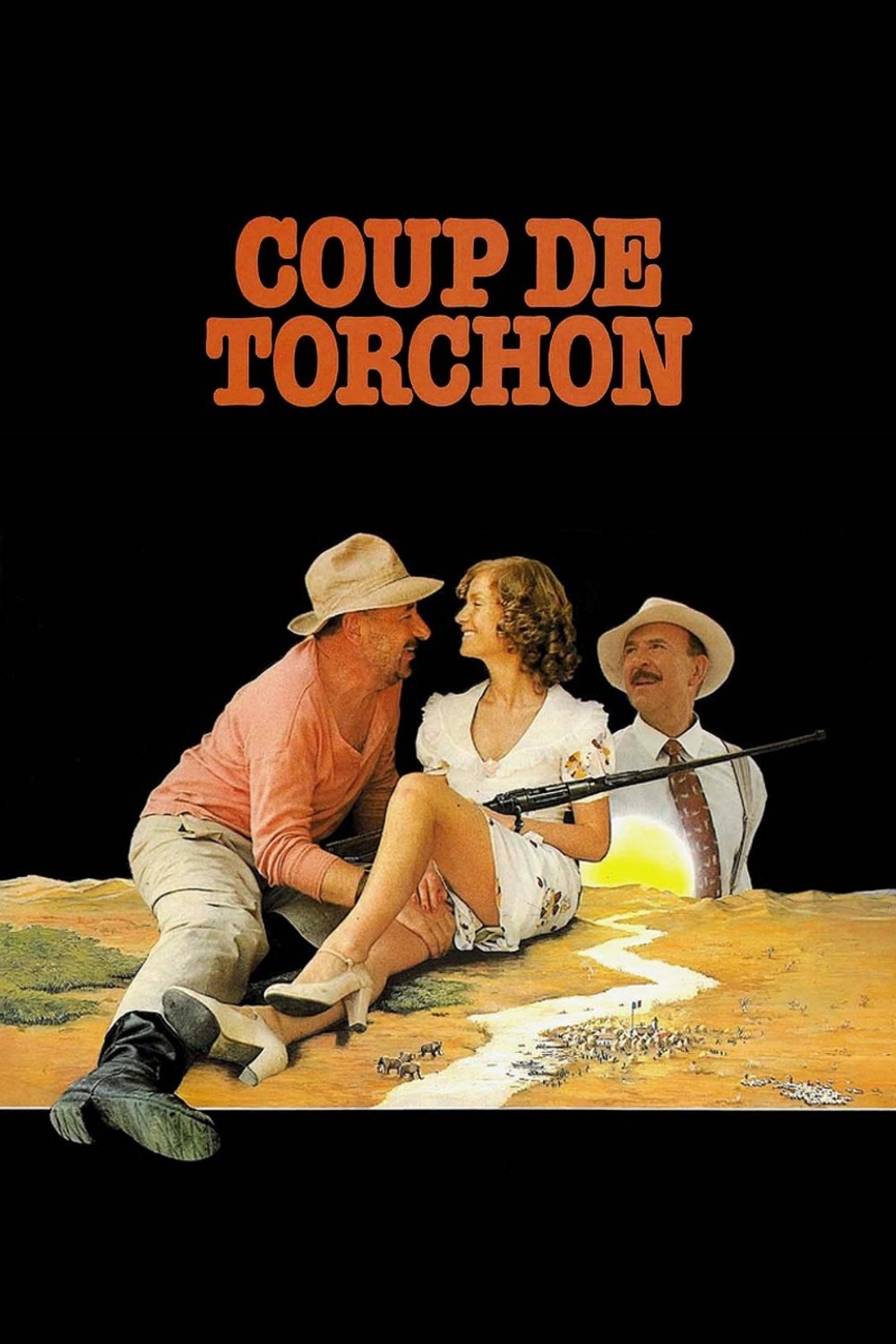
Coup de Torchon
Coup de torchon
- Status: Released
- 04-11-1981
- Runtime: 128 min
- Score: 7.077
- Vote count: 202
A pathetic police chief, humiliated by everyone around him, suddenly wants a clean slate in life, and resorts to drastic means to achieve it.
Cast
Trailer
Review
I did really quite enjoy Philippe Noiret's performance here, but I couldn't help but wonder if Sir Peter Ustinov wouldn't have had fun with this part too. It's all set in French West Africa just before the start of WWII. His town is a small, largely agrarian and provincial one where "Cordier" is the local cop. To be fair, he's a bit of an hopeless case and everyone from his wife "Hugette" (Stéphane Audran) downwards takes him for a fool. Suddenly though, something snaps. His attitude changes to one of an avenging angel who discovers that he does actually quite enjoy killing people - and he knows full well that nobody cares about the law. His new found, emboldened, character also embarks on a bit of a fling with "Rose" (Isabelle Huppert) and guess what, she's quite keen on getting in on his new community strategy too! It's comedic, yes - but very darkly so as it deals with issues of colonial superiority. Not just with the locals but amongst an hierarchy of their own community that is riddled with double-standards, hypocrisy and odious contradictions. As the story develops, we see an entertaining vision of the obnoxious pursuing the ghastly and just about everyone gets their just desserts. The writing (even via subtitles) is really quite imaginatively pithy; Noiret and Audran have one of those hate/hate relationships that it's a joy to watch, albeit it from a safe distance. It does lose it's way a little towards the end. Bernard Tavernier seems to have run out of steam and has no obvious way of concluding things in as pacy a fashion as the first ninety minutes or so of the story. Still, it uses a degree of satire to cast some delightful aspersions on the colonial classes and I quite enjoyed it.

